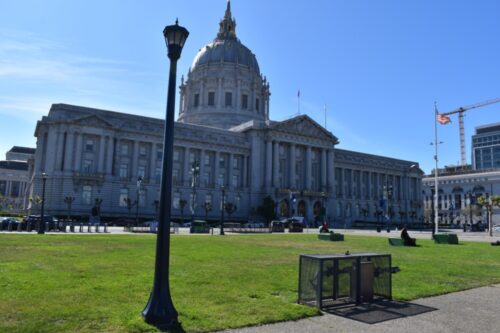Proposition Information – Short and Simple

By Maura Corkery
Collaborator to The Guardsman
In this year’s election, many city, and state propositions will be on the ballot. Voters should analyze carefully each and every proposition; Evaluate the pros and cons of each, and always do their research. Look who’s endorsing each proposition and what they say about it.
“Yes” or “No” seems like an easy pick, but voters should choose wisely. These propositions can have a major impact on different aspects of everyday life, and it could affect different groups of people, positively or negatively. Voters can go to ballotpedia.org, a non-profit and non-partisan organization, for further information on each proposition.
Here’s a list of the proposition on the 2020 ballot for San Francisco residents:
San Francisco County Propositions
- Prop. A: Bond measure authorizing City to borrow up to $487.5 million by issuing bonds to be spent on mental health and homelessness projects, improvement in public parks and recreational facility accessibility, quality and safety, and improvement to safety and condition of city streets and other public “right-of-way” assets (i.e. curb ramps, plazas).
- Prop. B: City charter amendment to create the Department of Sanitation and Streets, which would take over certain duties from the Department of Public Works; establish a Public Works Commission to oversee the Department of Public Works.
- Prop. C: City charter amendment that would remove requirements that members of City boards, commission, and advisory bodies be registered voters and U.S. citizens, and require that those members be both old enough to vote in City elections and be City residents?
- Prop. D: City charter amendment to create an independent Sheriff’s Department Office of Inspector General (OIG) and an independent Sheriff’s Department Oversight Board composed of appointees by the Mayor and Board of Supervisors.
- Prop. E: City charter amendment that would remove the requirement that the San Francisco Police Department maintain a minimum of 1,971 full-duty sworn officers in favor of regular evaluations of police staffing levels.
- Prop. F: Change certain taxes collected by the City from businesses, including eliminating the payroll expense tax; increasing gross receipts tax rate, exempting small businesses; increasing the administrative office tax rate; changing business registration fees.
- Prop. G: City charter amendment that would allow San Francisco residents to vote in local, City elections if they are at least 16 years old and registered to vote.
- Prop. H: Change to the City Planning Code for Neighborhood Commercial Districts to increase permissible uses, eliminate the public notification process for new permitted uses, and require an expedited process for permits.
- Prop. I: Permanent increase of transfer tax rate on certain sales and leases of 35 years or more of real estate with a price of at least $10 million.
- Prop. J: Change the 2018 Parcel Tax for the San Francisco Unified School District, from July 1, 2021, to June 30, 2038, with a new tax that decreases the current tax rate from $320 to $288, adjusting yearly for inflation, and exempting people age 65 years and older.
- Prop. K: Authorize the City to own, develop, construct, acquire, or rehabilitate up to 10,000 units of low-income rental housing in San Francisco.
- Prop. L: City would place an additional tax on some San Francisco businesses when their highest-paid managerial employment earns more than 100 times the median compensation paid to their local employees.
California State Propositions
- Prop 14: Authorizes $5.5 billion state bonds for stem cell/medical research; new research facility construction; administrative costs. Dedicates $1.5 billion to brain-related diseases.
- Prop 15: Increases property taxes on commercial properties worth more than $3 million to increase funding for public schools, community colleges, and local government services.
- Prop. 16: Repeals constitutional provision prohibiting consideration of race, sex, color, ethnicity, or national origin in public employment, education, and contracting decisions.
- Prop. 17: Restores the right to vote to those who have completed their prison sentences.
- Prop. 18: Amends the California constitution to allow 17-year-olds to vote in primary and special elections if they turn 18 by the next general election.
- Prop. 19: Allows homeowners over 55, disabled, or wildfire/disaster victims to transfer primary residence’s tax base to replacement residence; changes the taxation of family-property transfers; establishes fire protection service fund.
- Prop. 20: Limits access to parole programs established for non-violent offenders – restricts access for certain non-violent offenses and authorizes felony sentencing for certain offenses currently considered misdemeanors.
- Prop. 21: Allows the government to enact rent control on residential property over 15 years old.
- Prop. 22: Exempts app-based transportation and delivery companies from providing employee benefits to certain drivers, who are classified as “independent contractors”.
- Prop. 23: Establishes state requirements for kidney dialysis clinics to always have a medical professional on-site; prohibits clinics from reducing services without state approval; prohibits clinics from refusing services based on patient payment source.
- Prop. 24: Amends consumer privacy laws to allow consumers to prevent businesses from sharing personal information, correct inaccurate personal information, and limit businesses’ use of sensitive personal information; establishes the California Privacy Protection Agency.
- Prop. 25: Referendum on the law that replaced cash bail with a system based on public safety and flight risk.
